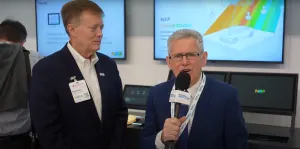What can Quantum Computing do?
What can Quantum Computing do? 
The Next Frontier in Technology
Quantum computing is one of the most exciting and transformative technologies of the 21st century. Unlike traditional computing, which relies on classical bits, quantum computing uses quantum bits or qubits to process information. This fundamental difference gives quantum computers the potential to solve complex problems much faster than classical computers, opening up new possibilities in fields such as cryptography, materials science, and artificial intelligence.
What is Quantum Computing?
At its core, quantum computing leverages the principles of quantum mechanics, the branch of physics that deals with the behavior of subatomic particles. In classical computing, information is processed using bits, which can exist in one of two states: 0 or 1. Quantum computing, however, uses qubits, which can exist in multiple states simultaneously due to a quantum phenomenon known as superposition.
Superposition allows a qubit to be in a state of 0, 1, or both at the same time. Additionally, quantum computers exploit another quantum property called entanglement, where qubits become interconnected so that the state of one qubit instantly influences the state of another, no matter the distance between them. These properties enable quantum computers to perform many calculations simultaneously, potentially solving problems practically impossible for classical computers to tackle.
How is Quantum Computing Different from Traditional Computing?
The key difference between quantum computing and traditional computing lies in how they process information. Traditional computers use a binary system (bits) to perform calculations, handling one piece of information at a time. This linear processing limits the speed and efficiency of classical computers, especially when dealing with complex problems requiring significant computational power.
Quantum computers, on the other hand, can process vast amounts of information simultaneously thanks to superposition and entanglement. This parallel processing capability allows quantum computers to explore multiple solutions to a problem at once, drastically reducing the time required to solve certain types of problems. For example, quantum computers could revolutionize fields like cryptography by cracking encryption codes in seconds, a task that would take classical computers millions of years.
Advantages of Quantum Computing
The potential advantages of quantum computing are profound:
- Speed and Efficiency: Quantum computers can solve certain problems exponentially faster than classical computers. This could lead to breakthroughs in drug discovery, financial modeling, and optimization problems in logistics and supply chains.
- Complex Problem Solving: Quantum computing can tackle problems involving vast datasets or complex simulations, such as modeling molecular structures for new materials or understanding complex quantum systems.
- Enhanced Cryptography: Quantum computing could both break existing encryption methods and create new, unbreakable encryption techniques, transforming the field of cybersecurity.
- Artificial Intelligence: Quantum computers could significantly improve machine learning algorithms, enabling faster and more accurate AI models that can process and analyze data more efficiently.
Drawbacks of Quantum Computing
Despite its potential, quantum computing faces several significant challenges:
- Technical Complexity: Building and maintaining quantum computers is extremely challenging. Qubits are highly sensitive to environmental factors like temperature and electromagnetic radiation, leading to errors and instability (known as decoherence).
- Scalability: Scaling up quantum computers to handle large numbers of qubits without introducing errors remains a major hurdle. Current quantum computers have only a limited number of qubits, far fewer than what would be needed for most practical applications.
- Cost: Quantum computers are expensive to build and maintain, requiring advanced technology and controlled environments to function correctly.
- Algorithm Development: While quantum computers offer significant potential, developing algorithms that can leverage this power is still in its early stages. Researchers are only beginning to understand how to fully utilize quantum computing for practical applications.
Latest Breakthroughs in Quantum Computing
Recent years have seen significant progress in quantum computing research and development:
- Quantum Supremacy: In 2019, Google claimed to have achieved "quantum supremacy," where their quantum computer, Sycamore, performed a calculation that would take the fastest classical supercomputers thousands of years to complete. Although this claim has been debated, it marked a significant milestone in quantum computing.
- Advances in Error Correction: Researchers are making progress in quantum error correction, a critical step toward building stable and scalable quantum computers. Error correction techniques are essential for maintaining the integrity of qubits during computations.
- Quantum Communication: There have been breakthroughs in quantum communication technologies, which use quantum entanglement to transmit information securely over long distances. This could lead to ultra-secure communication networks that are immune to eavesdropping.
- Increased Investment: Tech giants like IBM, Microsoft, and Amazon, along with startups and government agencies, are investing heavily in quantum computing research, accelerating advancements in the field.
Quantum computing represents a revolutionary leap forward in computing technology. While it is still in its early stages, the potential benefits are immense, promising to transform industries and solve problems that are currently intractable. However, significant technical and practical challenges remain, and it may take years or even decades before quantum computing reaches its full potential. Nonetheless, ongoing research and recent breakthroughs suggest that quantum computing is on the path to becoming a central technology in the future of computing.












